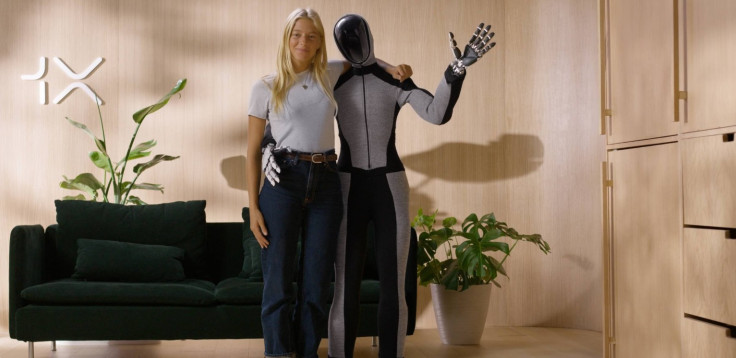Neo Humanoid Robot Unveiled — but Would You Let a $20,000 Machine Cook, Clean and Watch You 24/7?
The $20,000 robot promises to transform daily household life

A Norwegian robotics firm, 1X Technologies, has unveiled what it calls the world's first consumer-ready humanoid robot, promising to transform everyday life at home.
Named Neo, the robot is designed to handle domestic chores, from carrying groceries to helping in the kitchen, with the goal of bringing humanoid robotics into the average household.
Priced at $20,000 (£15,134), Neo is being marketed as a premium home assistant that could soon replace traditional home helpers.
Pre-orders are now open in the United States, with shipments expected to begin in 2026. But as the excitement grows, so do concerns over privacy and the idea of a machine observing daily life.
How the Neo Humanoid Robot Works
Neo is built to function as a full-service domestic assistant powered by artificial intelligence. Weighing roughly 30 kilograms, it features a soft-knit exterior in neutral tones, designed to blend seamlessly into living spaces.
Its advanced AI enables it to recognise objects, navigate homes, and interact with people through voice commands.
The robot's internal systems allow it to lift up to 68 kilograms and carry loads of 25 kilograms, making it capable of tasks such as tidying rooms or assisting with light household duties, according to Business Wire.
Unlike industrial robots, Neo operates in a 'human-in-the-loop' system, meaning human teleoperators can take control remotely when tasks become too complex.
The model is available either as a one-time purchase or through a monthly subscription plan of about $499 (£377.60), a model designed to make it more accessible to tech-enthusiastic households.
Designed for Domestic Comfort
Beyond its physical capabilities, Neo's creators have emphasised its human-like design and behaviour. It has been built to move naturally, walk upright, and respond conversationally. Its flexible body and soft joints make it safer around people and pets.
Neo's visual sensors and audio systems allow it to detect obstacles, analyse its environment, and learn from daily interactions.
It can also integrate with existing smart-home ecosystems, syncing with devices such as smart speakers and thermostats to assist in daily routines.
The robot's developers say their vision is to make automation 'feel human', focusing on companionship as much as utility.
Early images show Neo folding clothes, serving items, and performing household chores, all without the industrial stiffness of typical robots.
It can be yours for $20K, arriving in 2026 -> A look at 1X's $20K Neo humanoid housekeeper robot, controlled remotely by a human with a VR headset, available now for preorder, with delivery expected in 2026
— Glenn Gabe (@glenngabe) October 28, 2025
"Neo's creator, 1X Technologies, is making the Rosie-the-Robot dream:... pic.twitter.com/hcHLQXVWDd
Privacy Fears and Ethical Questions
Despite its futuristic appeal, Neo's introduction has sparked debate. Experts and consumers have raised questions about the constant data collection that such a robot could entail.
Equipped with cameras, microphones, and motion sensors, Neo must monitor its surroundings to function effectively, a necessity that has triggered concerns about surveillance within private spaces.
Critics warn that home robots like Neo could inadvertently record conversations, facial data, and behavioural patterns, raising issues about how such information is stored and secured.
While 1X Technologies insists that privacy and safety are top priorities, the company has yet to release a detailed transparency policy on data management.
Some analysts also caution that positioning a humanoid robot as a home assistant could change how households interact with labour, technology, and privacy expectations.
The Future of Humanoid Robotics at Home
Neo's unveiling places 1X Technologies in the growing race among companies such as Figure AI and Agility Robotics, all working to make humanoid robots viable for commercial and personal use.
Industry observers describe the launch as a milestone moment, a shift from the laboratory and factory floor to the living room.
While its $20,000 (£15,134) price tag limits access to early adopters, the company hopes that future versions will become more affordable as technology advances.
For now, Neo remains both a marvel of engineering and a lightning rod for debate, symbolising the thin line between innovation and intrusion.
© Copyright IBTimes 2025. All rights reserved.





















